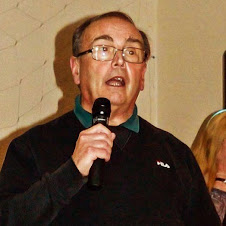Fortunately, the NF imploded at the end of the 70s, and never got to implement their policies. Undoubtedly, the campaigning by the ANL had played its part in this; even in the 70s, memories of the Holocaust and the crimes of the Nazis were still fresh in our national memory. Holocaust Memorial Day, chosen for the 27th January as the anniversary of the liberation of Auschwitz by the Red Army, is intended to remind future generations of the multitude of crimes committed durng the Holocaust, as well as honouring the Holocaust's victims.
Today, of course, is of particular poignancy to the Jewish people, who Hitler had marked down for total annihilation. We usually attribute the figure of six million to Jewish victims, but this is probably an underestimate. Thousands of infants and babies were killed before their births could be registered.
Even back in the 1970s, there were people who pointed out that there were millions of non-Jewish victims in the Holocaust. As the Huffington Post says:
"Historians estimate the total number of deaths to be 11 million, with the victims encompassing gay people, priests, gypsies, people with mental or physical disabilities, communists, trade unionists, Jehovah's Witnesses, anarchists, Poles and other Slavic peoples, and resistance fighters."
And we should remember them all, even though remembering can be traumatic. As Shakespeare's Macbeth says in Act 5, Scene 5, merely reading of Holocaust statistics and survivors' memories can leave you saying:
"I have supped full with horrors".
Here are just a few carefully chosen examples:
- Approximately 220,000-500,000 Romanies (Gypsies) were killed during the Holocaust.
- More than 870,000 Jews were killed at Treblinka with a staff of just 150 people. There were fewer than 100 known survivors of Treblinka.
- In one infamous concentration camp experiment, newborn babies were taken away from nursing mothers to see how long they could survive without feeding.
And that's quite enough for a short blog item...
That's why we in the ANL campaigned under the slogan "Never Again!". The trouble is, it has happened again, albeit in circumstances we could never have anticipated. Pol Pot in Cambodia, between 1975 to 1979, oversaw the murder of about 1,700,000 people; Idi Amin of Uganda slaughtered 300 000; 900 000 were killed in Rwanda in 1994; 320 000 are estimated to have perished in the Syrian Civil War, which began in 2012.
Besides this, which is only a sample (click on link for full list), I was saddened to read in the Guardian and on the BBC website that hate crime shows no sign of disappearing. As the Guardian says today:
"A quarter of the British public have witnessed racial hate crime in the last year, according to research released to mark Holocaust Memorial Day as the millions who fell victim to genocide are commemorated".
We can only be grateful that the neo-Nazis have failed in their attempts to create a mass movement in this country. Efforts to counteract hate crime, though, must be stepped up, not by a successor to the ANL, but by all of us. Ethnic and religious minorities, asylum seekers, LGBT people and even the disabled are targets for hate crime. Just how bad this has become is borne out by statistics:
"Home Office statistics on recorded hate crime released in October showed a rise of 18% on the previous year. In 2014-15 there were 52,528 hate crimes recorded by police, compared with 44,471 hate crimes the year before.
Of those, 42,930 (83%) were hate crimes based on race, 5,597 (11%) were about sexual orientation, 3,254 (6%) were to do with religion, 2,508 (5%) were directed at disabled people and 605 (1%) were transgender hate crimes."
In sum, we must all become campaigners against hate crime; we owe it to the victims of all the Holocausts to prevent another.
Of those, 42,930 (83%) were hate crimes based on race, 5,597 (11%) were about sexual orientation, 3,254 (6%) were to do with religion, 2,508 (5%) were directed at disabled people and 605 (1%) were transgender hate crimes."
In sum, we must all become campaigners against hate crime; we owe it to the victims of all the Holocausts to prevent another.


